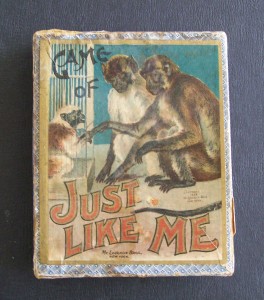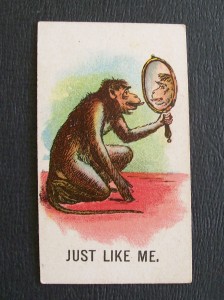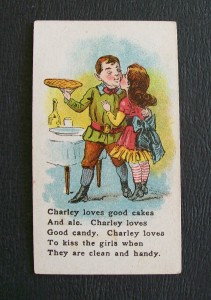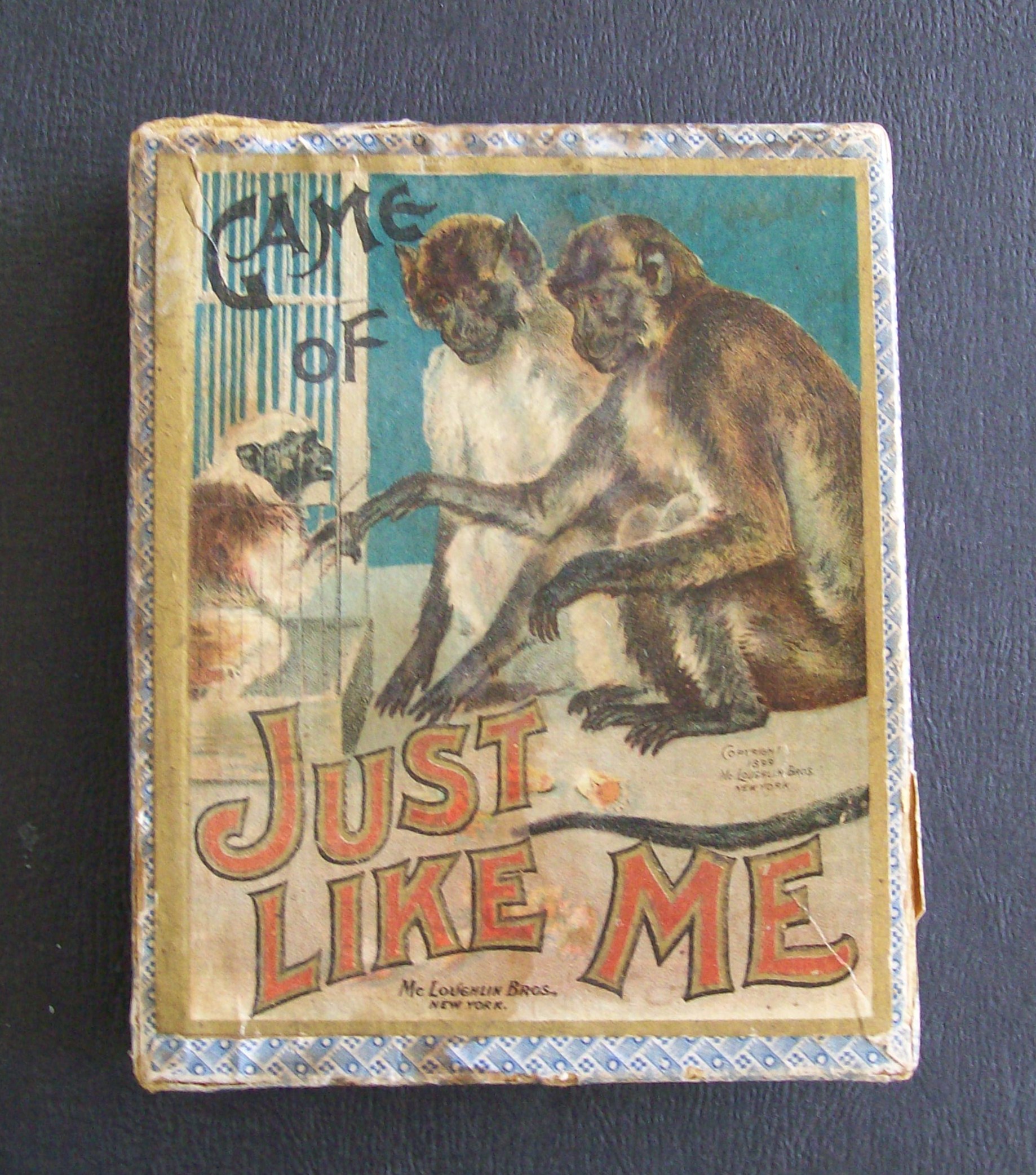The old 1888 game of Just Like Me provides an amusing set of rhymes and responses.
 Just Like Me is only one of the entertaining games McLoughlin Bros. of New York published in the late 19th century. Known not only for their children books filled with vibrant and colorful illustrations, McLoughlin Bros. was one of the best known game companies of the time. Their games also included the much loved and lively images.
Just Like Me is only one of the entertaining games McLoughlin Bros. of New York published in the late 19th century. Known not only for their children books filled with vibrant and colorful illustrations, McLoughlin Bros. was one of the best known game companies of the time. Their games also included the much loved and lively images.
The game of Just Like Me includes 15 ‘just like me’ cards and 15 rhyming cards. The just like me cards display a monkey sticking out his tongue while looking in a mirror. These cards are used to respond to the silly 15 rhyming cards.
The directions for the game begin with the statement, “When played with spirit it is one of the liveliest of children’s games.” Although the winner of the game was the player which formed the most matches, it certainly wasn’t the only objective. The game was played for fun and laughs. It was a game in which to gather around and simply enjoy.
 The game began by a dealer passing out all of the cards, one by one, to the players. All players would then have their cards face down in a pile in front of them. Moving around to the left, a player would turn over his top card. The first player to flip over a rhyming card would read aloud the rhyme. Moving around again, the first person to turn over a ‘just like me’ card would respond, ‘Just Like Me’ and take the formed pair.
The game began by a dealer passing out all of the cards, one by one, to the players. All players would then have their cards face down in a pile in front of them. Moving around to the left, a player would turn over his top card. The first player to flip over a rhyming card would read aloud the rhyme. Moving around again, the first person to turn over a ‘just like me’ card would respond, ‘Just Like Me’ and take the formed pair.
For example, if a player turned over the following rhyme card, he would read:
“Charley loves good cakes and ale. Charley loves good candy. Charley loves to kiss the girls when they are clean or handy.”
Whoever turned over the next Just Like Me card would answer, Just Like Me and take the pair.
 Laughs would for sure come about.
Laughs would for sure come about.
Below are some other examples of pairs:
“Big head little wit, Great head not a bit”—–Just Like Me
“The girl in the lane that couldn’t speak plain, cried: Gobble, gobble, gobble”—–Just Like Me
“Deedle, Deedle, Dumpling, My son John, he went to bed with his stockings on”—-Just Like Me
The simplicity of the game shares a enjoyment found in a different time period. Although strategy games were played also, many games during the 1800’s were played for mere leisure. After a long day doing chores, children with their families would relax and just take pleasure in having a good laugh together. Games supplied a method for doing so. And still can.
